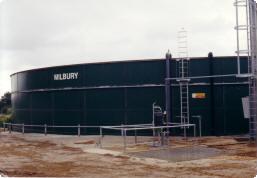info@akcagric.co.uk | 01380 724 687
New Farming Rules for Water - An Overview
New Farming Rules for Water - An Overview

From 2 April 2018 new rules for all farmers in England will be introduced to help protect water quality, by standardising good farm practices that many are already performing and offering a new approach to regulation.
There are eight rules, five about managing fertilisers and manures and three on managing soils.
The Environment Agency will roll out the rules through an advice led approach, working with farmers to meet the requirements before enforcement action is taken.
About the new rules
The rules will:
- promote good practice in managing fertilisers and manures
- encourage land managers to take reasonable precautions to prevent diffuse pollution from runoff or soil erosion
- require soil tests at least every 5 years
Soil testing will be introduced in a phased way so that soil testing undertaken during the four years before the rules come into effect can be taken into account.
Rule 1: planning use of manures and fertilisers
Application of organic manures and manufactured fertilisers to cultivated land must be planned in advance to meet soil and crop nutrient needs and not exceed these levels
Your planning must take into account where there is significant risk of pollution and the results of testing for Phosphorus, Potassium, Magnesium, pH and Nitrogen levels in the soil, which must be done at least every 5 years.
In assessing whether there is “significant risk of pollution” a person must take into account the following factors:
- the slope of the agricultural land, especially if the slope is greater than 12 degrees
- any ground cover
- the proximity to inland fresh waters and coastal waters
- the proximity to wetlands
- the weather conditions and weather forecasts
- the soil type and condition
- the presence and condition of agricultural land drains
Rule 2: storing organic manures
Organic manures must not be stored on land:
- within 10 metres of inland freshwaters or coastal waters
- where there is significant risk of pollution entering inland freshwaters or coastal waters
- within 50 metres of a spring, well or borehole
Rule 3: applying manures or fertilisers
Organic manures or manufactured fertilisers must not be applied:
- if the soil is waterlogged, flooded, or snow covered
- if the soil has been frozen for more than 12 hours in the previous 24 hours
- if there is significant risk of causing pollution
Rule 4: where not to apply organic manures
Organic manures must not be applied:
- within 10 metres of any inland freshwaters or coastal waters, or within 6 metres of inland freshwaters or coastal waters if precision equipment is used
- within 50 metres of a spring, well or borehole
Rule 5: where not to apply fertiliser
Manufactured fertiliser must not be applied within 2 metres of inland freshwaters or coastal waters.
Rule 6: reasonable precautions to prevent soil erosion
You must take all reasonable precautions to prevent significant soil erosion and runoff from:
- the application of organic manure and manufactured fertiliser
- land management and cultivation practices (such as seedbeds, tramlines, rows, beds, stubbles (including harvested land with haulm), polytunnels and irrigation)
- poaching by livestock
Rule 7: protecting against soil erosion by livestock
Any land within 5 metres of inland freshwaters and coastal waters must be protected from significant soil erosion by preventing poaching by livestock
Rule 8: position of livestock feeders
Livestock feeders must not be positioned:
- within 10 metres of any inland freshwaters or coastal waters
- within 50 metres of a spring, well or borehole
- where there is significant risk of pollution from poaching around the feeder entering any inland freshwaters or coastal waters
Do I already comply with the rules?
You would need to check against each of the rules to see whether you meet the new requirements. You are responsible for making sure that you comply, as failure to do so after April 2018 may result in an enforcement action.
If you don’t already comply with the new rules then you should review your farming practice and consider what changes are needed so that you can meet the requirements.
How the rules will be enforced
The Environment Agency (EA) will be the regulator for these rules. It will check compliance through its existing programme of work with farmers.
The EA will work with farmers by providing advice on how to meet the rules and help make sure they are compliant. The EA can use their formal enforcement powers where necessary to ensure compliance and to prevent or stop pollution. We expect that most cases will be dealt with by issuing advice and if necessary, through the use of civil sanctions such as compliance notices, with prosecution reserved for where other enforcement actions have failed.

